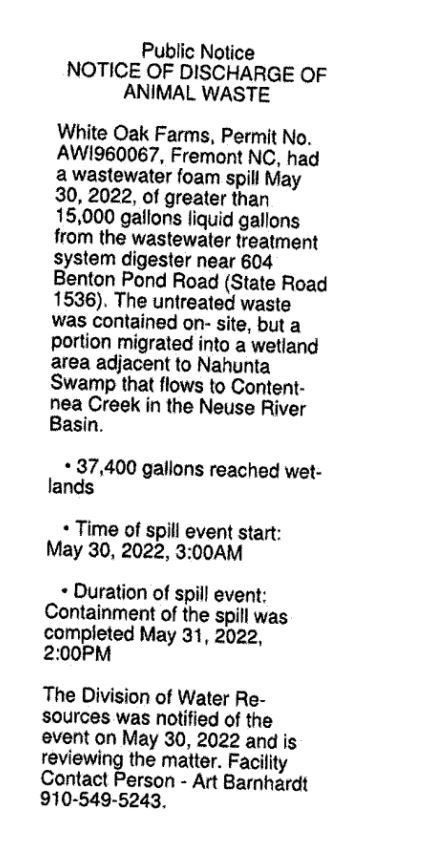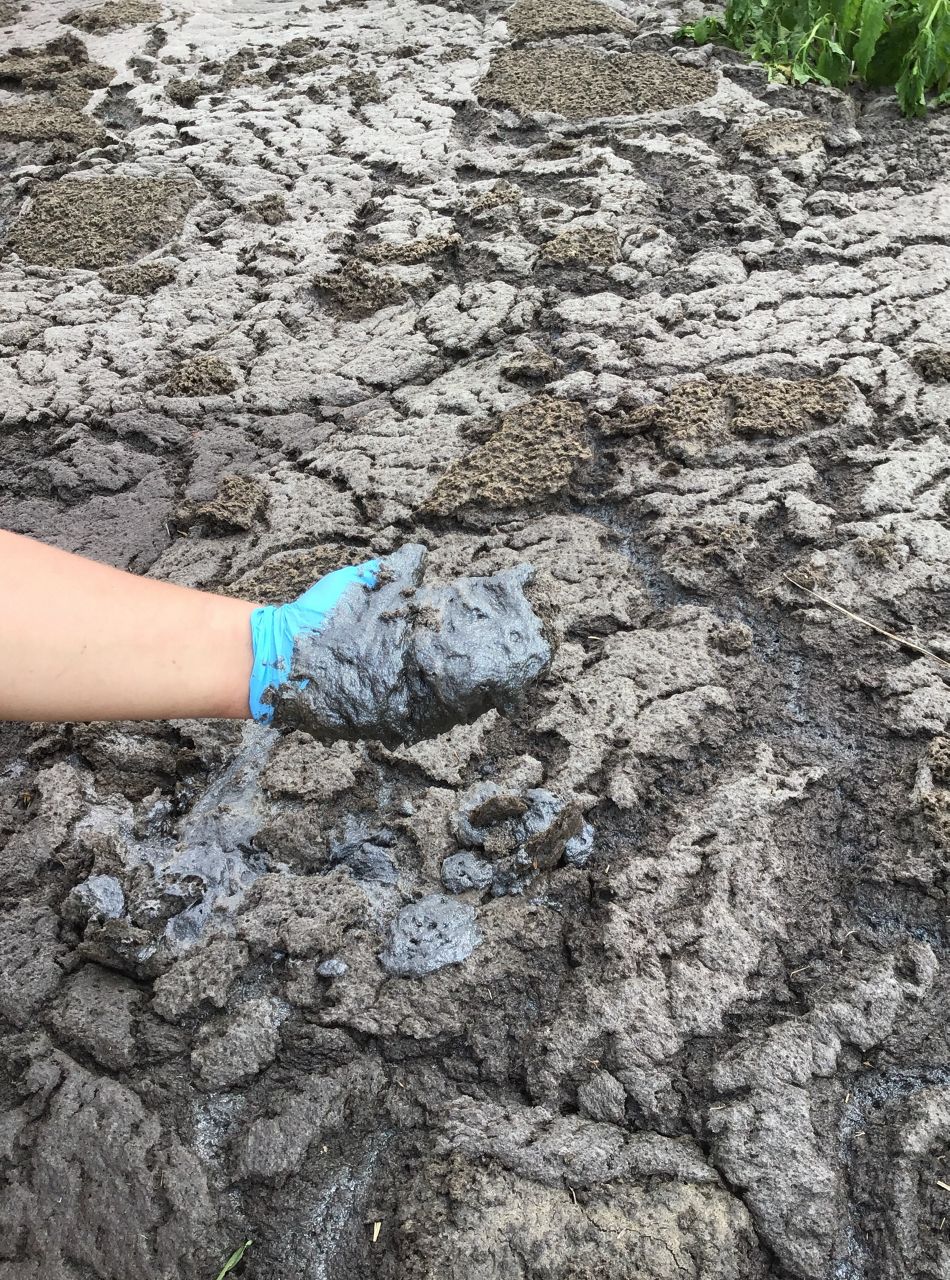WAYNE COUNTY, N.C. – According to the N.C. Department of Environmental Quality, more than 800,000 gallons of waste were released during a spill at a hog farm in Wayne County, including more than 10,000 gallons that reached nearby wetlands.
DEQ says the farm reported the spill to the agency on May 30, but Sam Krop, a local riverkeeper, is concerned because she says the first time she heard of this situation was months after it happened. Now Krop and the organization she works for, Sound Rivers, are claiming state officials didn’t do enough to address the situation or let the public know what happened.
Krop is the Neuse riverkeeper for Sound Rivers and has gotten used to the unexpected.
“We never really know what we are going to get until we actually take a sample and see what’s there,” Krop said. “We are not only sampling for the visible things like sediment in the water, but we are also looking for the invisible things like bacteria and forever cancer-causing chemicals, nutrient values and things you can’t see with the naked eye.”

While she’s used to examining samples along the Neuse River, Krop never expected to find out about a major waste spill at a hog farm in Wayne County.
“We certainly had no idea that this was going on at this facility. We were not aware that there was any incident until we did the flyover and noticed that something was clearly apparently wrong,” Krop said.
Krop took photos from the sky during a routine flyover on Aug. 3, including some above White Oak Farms in Fremont. The photos of that Wayne County farm show biogas bubbles where hog waste is stored to generate electricity.
“Upon looking at it a bit closer I noticed that there were slits in the covers of the biogas lagoons and I could see what appeared to be liquid contents on the inside. Around the lagoons and all the way into the wetland area that abuts the swamp there had been earthwork, a lot of soil removal and even vegetation removal. Clearly there had been some large machinery in there doing some sort of remediation,” Krop said.
Krop later learned that the farm told DEQ the bubbles burst on May 30.
Spectrum News 1 received three photos from DEQ’s visit to the farm after the reported spill. DEQ tells Spectrum News 1, in accordance with General Statute 143-215.10C(h), the farm owners put a notice in the local newspaper on June 16. The notice describes the contents as “wastewater foam,” but Krop believes that description downplays the contents.
“We actually looked into what the contents of this are and were shocked and disturbed to find that this waste is actually consisting of dead whole animal parts, dead hogs that had been delivered to this facility, old hotdog meat and other processed meat and liquefied hog waste. All of this was mixed up into a slurry and they were generating biogas from this slurry of basically mortality and waste,” Krop said.

According to a statement from DEQ, the farm was not supposed to be storing that kind of waste. “The mixture of materials being fed to the digester prior to the incident was not in compliance with facility’s approved individual permit. This type of operation involving co-digestion is not permitted under the general permit for biogas digesters developed as a result of the 2021 Farm Act.”
DEQ estimates that between May 30 and June 23, 806,868 liquid gallons of waste were discharged, including 10,745 gallons that reached wetlands.
Krop believes DEQ should have done more to tell people about this spill.
“We had no idea that anything was going on at the facility, that there had been a disaster that happened several months ago. It took a little bit of digging to uncover what was actually going on,” Krop said.
DEQ says, “Water samples taken on June 3, 2022 indicate the presence of nutrient based compounds at low levels. Because of the quantity of liquid reaching surface waters, and the results of samples collected by staff on June 3, it was determined that this did not pose a significant exposure risk to the public.”
On July 5, DEQ sent White Oak Farms a letter outlining 13 violations. The letter was updated on Sept. 2 to include 15 violations.
Deborah Ballance, the owner of White Oak Farms, sent Spectrum News 1 the following statement: “Our independent family farm has always been defined by a commitment to sustainability and innovation. Our digester system is unique and has successfully generated renewable energy for our community.”
“The tear in our basin cover was unfortunate, and we have taken appropriate steps to repair it in a responsible way, consistent with guidance from the NC Department of Environmental Quality,” the statement reads. “We have complied with the Notice of Violations and will continue operating our farm in a safe, responsible and sustainable manner.”
However, what worries Krop most is that this farm has been on the state’s radar. A different DEQ inspection report, showing previous permit violations, was filed on Feb. 3, 2022.
“When there’s a large scale polluting event like this what is most upsetting to me — aside from the fact that this is extremely consequential from an environmental perspective — what’s most upsetting to me is the lack of transparency and accountability on behalf of the Department of Environmental Quality,” Krop said.
After Krop learned about the spill, Sound Rivers worked with Southern Environmental Law Center to send a letter to DEQ on Sept. 7. Sound Rivers wants DEQ to take “immediate action” to hold White Oak Farms to the high standards set by the state’s laws.
DEQ tells Spectrum News 1 that the cause of the spill is still under investigation, responses are being evaluated and additional enforcement actions are under consideration.
The agency says it is in contact with the farm owner to provide oversight of the containment and disposal of the waste and repair the biogas cover. DEQ says initial cleanup is complete but the farm must finish the process, and DEQ reports that no new material has been added to the area.



